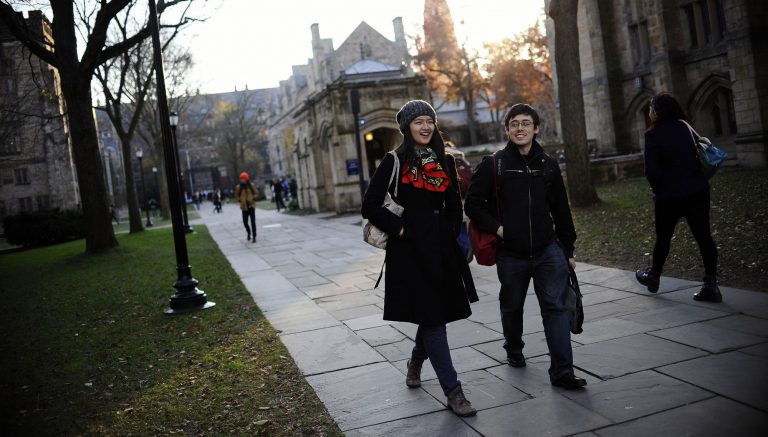
A new study that analyzed the financial effect of nearly two decades of foreign students in Denmark found that higher-level students contributed a net total of 165.5 Danish krone (equal to about US$23.8 million) to the economy.
The study, conducted by think tank DEA, reviewed data from 1996 to 2012 for students who completed a degree in Denmark between ’96 and 2008, to ensure that four years of data were available for every student. They found that students who completed long-term degrees (Masters or higher) made major financial contributions to the Danish economy, even though many of them received state grants and generous funding.
Foreign students, particularly those from other countries in the European Union and European Economic Area, have been the target of criticism, as the Danish government, by law, pays for their educational fees. They are also eligible for other federally-funded loans and grants, causing some locals to suggest that they are draining public resources that should instead go to Danish citizens.
The DEA study, however, would seem to disprove that theory, as it shows that the overall tax revenue generated by international students who stay in Denmark after graduation adds up to far more than what the state spends on those students.
“As long as the labour market can absorb more international students, there is really good business for society in increasing both recruitment and retention,” said Martin Junge, Head of Research at DEA, in an article in The PIE News.
The amount that students bring to the local economy, of course, depends on whether they stay in the country after they graduate. In Denmark, at least, that seems to be the case, as the DEA study found that nearly 40 percent of students that completed a degree between 1996 and 2000 were still in the country a year later.
Students completing an advanced degree provided the most financial benefit to the Danish economy, contributing an estimated $35 million over the 16-year period of study (the net total for all international students is lower due to losses from Bachelors level students).
These results support the findings of a 2013 study by the Danish Rational Economic Agents Model organization, which concluded that adding 1,000 Bachelor-level international students each year could contribute between $60.9 and $121.8 million to the Danish economy in the next 50 years.
The economic benefits of investing in international students are not exclusive to Denmark. In 2014, international students added almost $27 billion to the United States economy — up from just $24 billion the year before. Foreign students in the US are also responsible for creating or supporting up to 340,000 jobs, according to the National Association of International Educators (NAFSA).
These staggering numbers are slightly less surprising when we consider that, according to the Institute of International Education (IIE), one-third of all international students around the world choose to study in either the US or the UK — though numbers in the UK have been declining lately due to strict visa policies.
Watching their wallets
Universities and governments aren’t the only ones looking at the bottom line, though. International students are also being more strategic about where they can get the best return on their own investment. On average, the costs of studying in English-speaking countries, where many international students choose to study, are fairly high. However, the costs are relative — a student in Toronto will spend about 29 percent less than a student in Sydney, for example.
A 2014 study by HSBC and Ipsos MORI that analyzed the annual costs of tuition and living in the four most popular English-speaking host countries found that Canada was by far the most affordable, with an average annual cost of US$29,947, while Australia was the most expensive, at $42,039 per year. The US and UK were fairly close, with the US taking second place at a yearly cost of $36,564, and the UK just behind at $35,045.
Though international students, particularly those studying at higher levels, are proven to provide an economic benefit to their host countries, that depends on them staying in the country after graduation — and being able to afford to do so.







